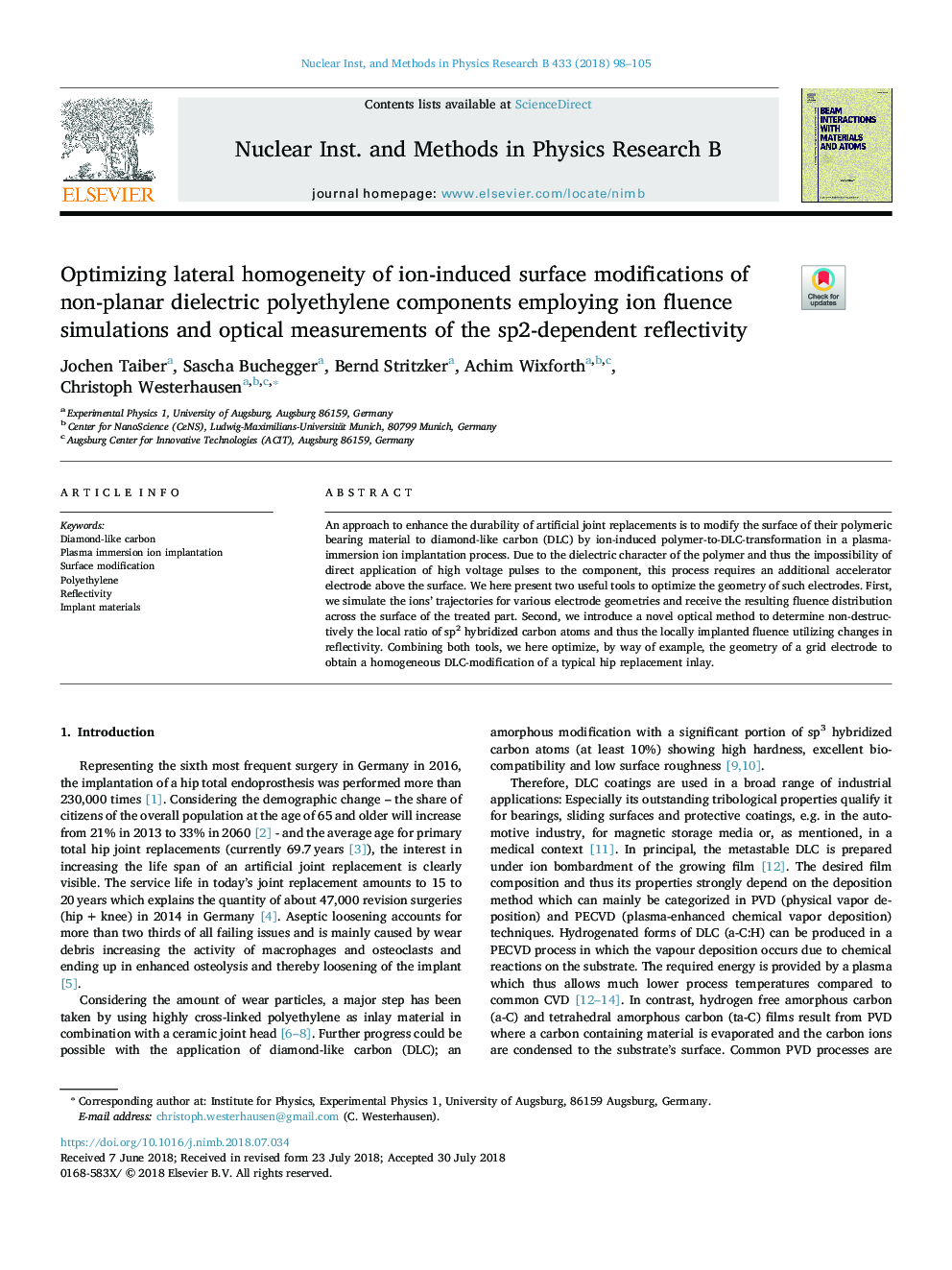| Article ID | Journal | Published Year | Pages | File Type |
|---|---|---|---|---|
| 8039030 | Nuclear Instruments and Methods in Physics Research Section B: Beam Interactions with Materials and Atoms | 2018 | 8 Pages |
Abstract
An approach to enhance the durability of artificial joint replacements is to modify the surface of their polymeric bearing material to diamond-like carbon (DLC) by ion-induced polymer-to-DLC-transformation in a plasma-immersion ion implantation process. Due to the dielectric character of the polymer and thus the impossibility of direct application of high voltage pulses to the component, this process requires an additional accelerator electrode above the surface. We here present two useful tools to optimize the geometry of such electrodes. First, we simulate the ions' trajectories for various electrode geometries and receive the resulting fluence distribution across the surface of the treated part. Second, we introduce a novel optical method to determine non-destructively the local ratio of sp2 hybridized carbon atoms and thus the locally implanted fluence utilizing changes in reflectivity. Combining both tools, we here optimize, by way of example, the geometry of a grid electrode to obtain a homogeneous DLC-modification of a typical hip replacement inlay.
Keywords
Related Topics
Physical Sciences and Engineering
Materials Science
Surfaces, Coatings and Films
Authors
Jochen Taiber, Sascha Buchegger, Bernd Stritzker, Achim Wixforth, Christoph Westerhausen,
